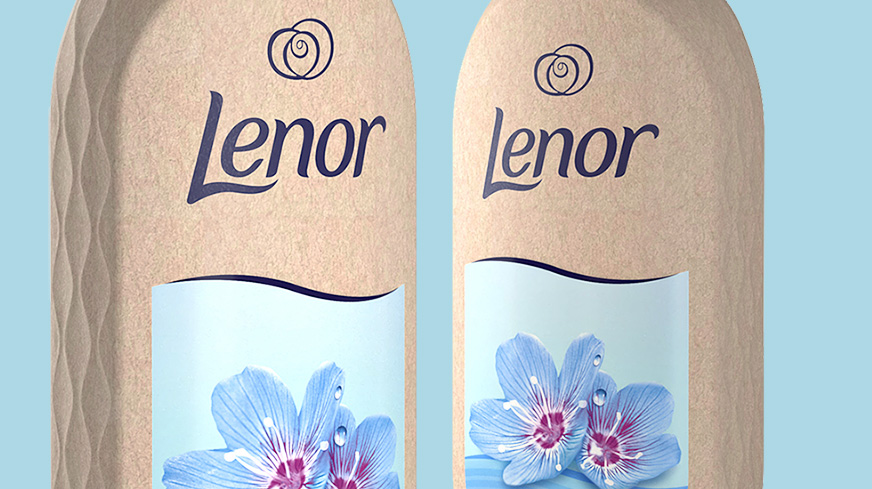Consumer goods giant Procter & Gamble is testing a paper-based bottle for its Lenor-brand liquid fabric softener belonging to its Fabric and Home Care division. The “first generation” fiber bottles were developed in partnership with The Paper Bottle Company (Paboco). The test site for the pilot is the Dutch supermarket chain Albert Heijn. P&G’s project is a classic example of paperization and the circular economy. As long as plastic cycles are not closed, we will see more of them. The big players are increasingly testing fiber-based packaging alternatives like P&G, which has already announced plans to further develop its first-generation fiber bottles.
To kick off the pilot project, P&G plans to put 120,000 paper bottles on supermarket shelves in the Netherlands. By testing the fiber-based bottles, the U.S. consumer goods company is working toward its goal of reducing plastic consumption in its Fabric & Home Care businesses by 30 percent by 2025 and halving its use of petroleum-based plastics by 2030.
Paper bottle details
- The paper bottles’ fibers come from FSC-certified sources, according to the company.
- An inner layer of recycled plastic is said to help prevent leakage. In addition, the barrier is said to ensure the preservation of the product’s odor.
- For the future, P&G and Paboco are working on a waterproof as well as fully recyclable version of the paper bottle. In some EU countries, first-generation bottles are already recyclable, according to P&G.
The development process
P&G calls its vision of a fully recyclable paper bottle that can also hold liquids, protect the product and maintain its integrity ambitious. To succeed there is need for partners and industry collaboration. “Every learning journey needs a starting point, and multiple iterations are required to be successful,” P&G said.
Paper and circular economy trending
P&G’s paper bottle pilot is a typical representative of current sustainability efforts. The focus is on plastic substitution and full recyclability.
As long as plastic cycles are not closed, fiber-based solutions will continue to capture market share in some areas. It is no coincidence that we are observing more and more tests by various major players in different markets. The trend is clear.

